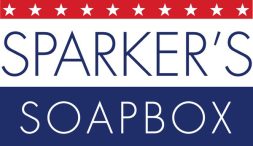
There is an ethics referendum on the ballot for Naples voters.
A referendum is a vote by the electorate on a single political question which has been referred to them, either by a legislative body or by popular initiative, for a direct decision.
This referendum began with a popular initiative and its placement on the ballot was subsequently supported by a unanimous vote of the Naples Mayor and City Council almost immediately following the March 2020 City elections.
The history of the referendum dates back to an ethically-controversial 2016 vote on a proposed development plan by a then-City Council member, and includes a years-long and ultimately unsuccessful legal challenge by the former Mayor and City Council.
The referendum asks:
Shall the Charter of the City of Naples be amended to establish an independent ethics commission, set minimum requirements for the ethics code, and establish an ethics office?
As explained by the referendum’s sponsor, Ethics Naples, the amendment:
- “would establish a voluntary, independent Ethics Commission of five City of Naples voters, appointed by the following elected officials: our State Attorney and Public Defender, our County Sheriff, our District 4 County Commissioner (Naples) and our City Council;”
- “would form an Ethics Office with at least a part-time executive director and written policies for handling complaints, confidentiality, educational programs, advisory functions, lobbyist regulations and investigations;” and
- “would lead to a revised Ethics Code that covers all city employees, officials and lobbyists.”
“These basic requirements would be placed in the City’s Charter, which can only be changed by the voters. The details of a revised ethics code would be modified as needed by the Ethics Commission and City Council. Program costs would be low; the Ethics Commission is voluntary and City Council will retain full control over the Ethics Office budget.”
Read the proposed City Charter amendment.
Read the current City Code of Ethics.
Referendum Sponsors and Supporters

Ethics Naples is a 501c4 political action committee (PAC) formed in 2017. The citizens who formed the group said they did so in response to five issues from the last five years in Naples:
- Conflict of interest regarding land development;
- Lobbying by developers;
- Potential misapplication of CRA funding;
- Falsification of official reports; and
- Attempts to revoke the City’s ethics code.
The allegations are described in more detail in the website’s FAQs.
The committee’s mission is “to improve the transparency and accountability of local government in the City of Naples” and its “immediate goal is to amend the City Charter to include a ‘best practices’ Ethics Code overseen and administered by an independent Naples Ethics Commission.”
The members of its board of directors are Nick Penniman, President; John Lehmann, Vice President; Bill Lutz, Secretary / Treasurer; and Joan Fiore, Joe Karaganis, and Don Fierce, Directors.
Additional referendum supporters include Mayor Teresa Heitmann, Vice Mayor Terry Hutchison, and City Council members Ray Christman, Paul Perry, Mike McCabe and Ted Blankenship, former Council member Linda Penniman, Collier County Commissioner (District 4) Penny Taylor, the League of Women Voters of Collier County, and the Naples Daily News.
Also supporting the referendum is Represent Southwest Florida, a chapter of Represent.Us, a national nonpartisan anti-corruption group.
Contributions to the Ethics Naples PAC since its formation in 2017 through 6/30/20 totaled $220,054 and expenditures totaled $206,661, according to its most recent financial report.
Referendum Opponents

Opponents of the referendum do not have a website. As mentioned above, the proposal was opposed by the former Mayor and a majority of the then-City Council members.
In anticipation of this post, opponents of the referendum referred me to an article published by then-Council member Ellen Seigel in the Aug/Sep/Oct 2018 issue of Old Naples News.
In it, Seigel expressed concern that the proposal would set up “a completely separate body of unelected panelists, accountable to no one … with wide discretionary powers and an undefined budget.” She also said the proposed “layers of bureaucracy (with no oversight by the City Manager or the City Council) and the associated costs are out of proportion to the needs of a city the size of Naples.”
She said that in her view, “Council members are elected by eligible Naples voters, their positions are public and they must stand for reelection periodically. A separate Ethics group of unelected people would be a distraction and unnecessary.”
And she went on to list additional concerns. Read the full article here.
In addition, a recent Naples Daily News article reported that “Councilman Gary Price said any changes to the city’s current ethics code should be discussed with the community” and that “the city should improve ethics by electing ethical people and holding them to the city’s existing policies,” “rather than by amending the charter.”
In February 2020, a political committee called Citizens Who Love Naples was formed. Its officers were James T. Rideoutte, Chairman, and William R. MacIlvaine, Treasurer, a former City Council member.
The committee was formed to support “effective, positive government for Naples” and to support the reelection in March 2020 of Mayor Bill Barnett and Council members Seigel, Reg Buxton and Michelle McLeod, its organizational form says.
The reelection effort having been unsuccessful, the Citizens Who Love Naples PAC was disbanded. Its final financial report for the period ended April 30 reported total monetary contributions of $80,000 and monetary expenditures, largely for campaign and process advertising, of the same amount.
History
While not necessary to make an informed decision about the referendum, here is my attempt to reconstruct and summarize the history leading up to this moment based on a review of the Naples Daily News archive.
Local news reported in this post is by
Brittany Carloni, Lisa Conley and Joseph Cranney
(Naples Daily News)
In May 2016, then-Naples City Council member Sam Saad cast a vote to approve a site plan for a new 7-Eleven service station. Investigative reporting by the Naples Daily News reporter Joseph Cranney subsequently found that:
- Naples Councilman Saad pushed for public projects in area where partner oversees property. Naples Daily News, 11/5/16
In City council discussions that followed that vote and in part as a result of Cranney’s investigative reporting, then-Vice Mayor Linda Penniman proposed formation of a commission to enforce government ethics rules. But:
- Naples City Council rejects proposal for a commission to enforce government ethics rules. Naples Daily News 11/16/16
Subsequent reporting found that, despite assurance to the contrary:
- Naples councilman Sam Saad’s law firm did work for group before, after vote. Naples Daily News, 12/20/16
This was problematic because state law prohibits elected officials from voting on projects offered by a petitioner with whom the official has an ongoing business relationship, City Attorney Bob Pritt said.
Council members examined the City’s nine-page code of ethics that had been enacted after a large Collier County public corruption scandal in the late 1990s. They found that its code does not include a policy on how complaints should be handled if they are sent to the City, nor does it provide penalties for ethics violations.
To settle the question of whether Saad had a conflict under state law, a complaint would have to be filed with the Florida Commission on Ethics, according to the City Attorney. So:
- Penniman of Naples Council files ethics complaint vs. peer Saad. Naples Daily News, 4/3/17; Penniman complaint, 2/28/17.
At the same time, members of Naples’ River Park community weighed in with their own objections to the 7-Eleven project:
- River Park residents argue Saad violated ethics laws, project should be voided. Naples Daily News, 2/24/17
- NAACP files state complaint against Naples Councilman Sam Saad. Naples Daily News, 5/25/17
In the months after filing her claim, Penniman discovered additional evidence that showed that:
- Naples Councilman Sam Saad sought meeting with agent before 7-Eleven vote. Naples Daily News, 10/13/17
Given the unwillingness of a majority of Council members to support Penniman’s proposed local ethics commission, a group of concerned citizens decided the voters should be asked to decide. They formed the Ethics Naples PAC and began collecting signatures to place a charter amendment on the 2018 ballot. That amendment, which is before voters today, would to require the City to adopt a best-practices ethics policy.
- Naples PAC lobbies for question on local ethics commission. Naples Daily News, 10/30/17
Soon after, Penniman’s suit before the state Ethics Commission was dismissed:
- Florida ethics panel dismisses case vs. Naples Councilman Sam Saad. Naples Daily News, 1/19/18
With the City’s regular elections coming the following month, the matter of the local ethics commission had become one of several election issues the candidates debated:
- Naples City Council candidates talk issues at LWV forum. Naples Daily News, 1/29/18
The winners of the election were Penniman (reelected to a second term); newcomer Terry Hutchison, who had campaigned in support of “improvements in our City’s ethics policy;” and former Councilman Gary Price.
Meanwhile, the effort to gather signatures on petitions continued, and by April:
- Proposal for Naples ethics panel draws enough signatures for ballot spot. Naples Daily News, 4/24/18
At that point, City Attorney Bob Pritt argued that parts of the referendum might be illegal, and a majority of Council members voted to challenge it in court.
- Ethics PAC fights back against Naples Council to get referendum on August ballot. Naples Daily News, 5/18/18
- Judge won’t look at Naples ethics panel question in time for ballot spot. Naples Daily News, 6/15/18
- Judge says council has right to question ethics referendum’s legality. Naples Daily News, 8/21/18
- Judge rules: Referendum on creating Naples ethics panel can go to voters. Naples Daily News, 10/5/18
- Naples Council changes course, will appeal ruling on creating ethics panel. Naples Daily News, 11/7/18
Then in early 2019:
- Naples Councilwoman Linda Penniman resigns due to husband’s health concerns. Naples Daily News, 1/16/19
A special election was called to fill the vacancy. Ray Christman, who had been the executive director of the Ethics Naples PAC, filed to run for the vacant Council seat and stepped down from the Ethics Naples position to avoid any conflicts of interest.
- Ray Christman wins Naples City Council special election. Naples Daily News, 4/2/19
With Christman’s win, the same split of the Council with respect to the ethics commission remained, but the opponents of the proposal would face reelection the following year.
In recognition of what was at stake, in February 2020, a PAC supporting the incumbent mayor and city council candidates was formed.
- New political committee, Citizens Who Love Naples, forms ahead of Naples election Naples Daily News, 3/9/20
Just weeks later, the City lost its appeal of the lower court’s decision on the legality of the referendum:
- Appeals court orders referendum on Naples ethics commission proposal. Naples Daily News, 2/21/20; read the decision here.
While the decision came too late for the referendum to be on the March election ballot, the four incumbents who opposed it were ousted in the race:
- Naples elections: Heitmann wins race for mayor; McCabe, Blankenship and Perry elected to City Council. Naples Daily News, 3/17/20
And just one month later, by a unanimous vote of the new City Council:
- Naples plans vote on Ethics Naples referendum for August primary. Naples Daily News, 4/16/20
- Ethics referendum on ballot in Naples could create new ethics commission, office. Naples Daily News, 8/4/20
And now …
As a result of the commitment and perseverance of a group of Naples citizens, it is up to the voters to decide.
